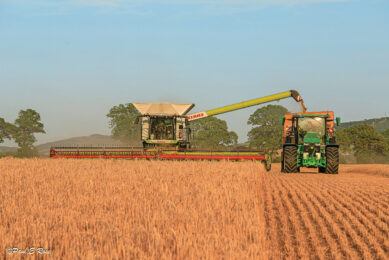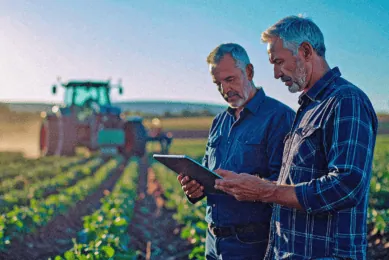Artificial intelligence perfectly able to grow crops

Robotisation of food production has major advantages. Robots are light and make staff superfluous.
People without any knowledge can use artificial intelligence (AI) to produce more profitable cucumbers than the most experienced growers. This was shown in an experiment that Wageningen University & Research (WUR) in the Netherlands conducted last year in a greenhouse complex at their experimental farm in Bleiswijk.
WUR researcher Isabella Righini cited this research at the Global Future Farming Summit, which was held in Wageningen recently. Experts there focused on precision agriculture and the robotisation of food production.
Autonomous Greenhouse project
Righini: “Producing food requires a lot from the grower. He must deal with the supply of raw materials, such as minerals for his crops. He must take care of the crops. And he has to market his crops. That is a complex operation. In the Autonomous Greenhouse project we are testing to what extent artificial intelligence can help growers grow crops.”
Text continues underneath image
17% higher net profit thanks to AI
In the cucumber experiment, 5 different teams grew cucumbers using AI. They competed against 1 team of experienced growers, Righini said. “The 5 teams knew little or nothing about growing cucumbers. One AI team achieved a 17% higher net profit with the cucumbers than the growers. It shows that AI can help growers to optimise their decisions. We will repeat this experiment early next year with the cultivation of cherry tomatoes.”
WUR researcher Isabella Righini:
Whether we like it or not, we need new technologies to feed the growing world population
New technology could help overcome the ever growing problem of the aging workforce in farming worldwide. Moreover, young people do not want to do heavy and monotonous work for a long time, such as harvesting crops by hand or weeding in the field. Righini: “Whether we like it or not, we need new technologies to feed the growing world population.”
Technological cultivation can be very sustainable
Director Ernst van den Ende of the Plant Science Group of WUR believes that technological cultivation can be very sustainable. “In the Netherlands, 80 kilos of tomatoes are grown in the greenhouse per square meter with a water consumption that is 4 times lower per kilo than in Spain, where 4 kilos per square meter are harvested in the open air.”
Öle Green, director of AgroIntelli:
It is a big challenge to convince politicians to adjust the rules to what is already possible with robots
Director Öle Green of the Danish technology company AgroIntelli showed what the Robotti field robot can do. The robot consists of a tool carrier that is driven on both sides by a four-wheel “robot”. Between the 2 robots is a 3 meter wide seed drill, hoeing device or sprayer. Potato storage in beets can be controlled with the latter.
Camera
The nozzles are very close together. A camera determines whether there is a potato plant or a beet plant, after which the spray nozzle sprays a drop of herbicide onto the potato plant. Green: “The cameras distinguish individual leaves. The beets are not hit and it saves 65% on herbicides, “assured Green. “And with this application we can reach a speed of up to 6 kilometers per hour.”
Text continues underneath image
2 limitations in the use of robots
Green mentioned 2 limitations in the use of robots. “Translating the camera images into an application, such as fertilising or spraying, requires a lot of computing power from computers. The other bottleneck are regulations. A grower can simply let the robot do its work. But legislation requires robots, just like drones, to be under constant supervision. Or they must be restricted by a fence, as with automatic lawn mowers. It is a big challenge to convince politicians to adjust the rules to what is already possible with robots. ”
According to Green, the robotisation of food production and the use of AI cannot be avoided. “Just like the transition from the horse to the tractor and from manual milking to machine milking.”
Also read this interview with Öle Green: Demystifying robots for use by everyday farmers
Join 17,000+ subscribers
Subscribe to our newsletter to stay updated about all the need-to-know content in the agricultural sector, two times a week.



